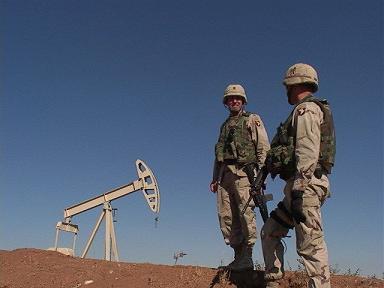Gen (ret.) Abizaid came to speak today on Brigham Young University campus. It was great to be able to hear what he said about the Middle East and the conflicts that are going on over there.
Quick Biography of Gen Abizaid, he is a West Point Graduate, and an infantry officer in the U.S. Army. At the time of his retirement in 2007 he was the longest-serving commander of the U.S. Central Command, commanding U.S. military operations in the Middle East, Southwest Asia, and the Africa.
In his address, presented by the Wheatley Institution, he stated four issues which are the big issues at play in the Middle East. For the U.S. to really make a difference in the Middle East, we need to pay attention to these issues and seek to solve them.
First, the Rise of Sunni Islamic Extremism. This is what is associated with Al Qaeda. We need to understand this enemy and what their goals are. Back in WWII, if you held up a picture of the top enemy leaders, most Americans could identify at least the top 5 or more. Today, if we showed people the top Al Qaeda leaders, people would recognize Bin Laden, and maybe al-Zawahiri, but nobody else. To most Americans, their goals remain a mystery. However, all you have to do is go online and find out. They was to remove U.S. influence form the Middle East and replace the illegitimate governments of Islamic states, thus reinstating Caliphates, or former Taliban-Ruled Afghanistan type government. A vast majority of Muslims oppose this happening and they do not support this ideology. What the United States needs to do is to help the people of the Middle East help themselves in eradicating theses extremists and these ideologies.
Second big issue in the Middle East is Shia Islamic Extreemism. Ideologically and religiously different than Sunni Islamic Extremism, this Islam is portrayed by the Islamic government in Iran. Similar however to the Sunni Islamic Extremism, this ideology also wishes to drive the US out of region so that it can greater influence in the region.
The third big issue facing the Middle East is, as Gen Abizaid said, the "continued corrosive effect of the Israeli-Palestinian conflict." This conflict has stirred a lot of feelings in the Middle East and is making tensions amongst Middle Eastern nations and Western nations tense. One key element in solving this problem is a White House that has continuity and passes the torch of Israeli-Palestinian peace talks from one administration to the next instead of it being a political football.
The fourth big issue Gen Abizaid spoke on was the continued reliance of the United States on Middle Eastern oil. This issue above all has caused the U.S. to react in the Middle East more often and with more force than anywhere else in the world. The United States must come to grips with this problem and start looking for other solutions to Middle Eastern oil.
Finally, Gen Abizaid spoke how there are various accelerants that could cause the situation in the Middle East to get worse quicker. One of those accelerants is the proliferation of nuclear weapons in Middle Eastern countries such as Iran, Pakistan, and Israel.
Whatever happens in the Middle East, Abizaid stressed the idea that military force and war is always a last option. What is most important to us as a country is to arm the people over there so that they can lead efforts to eradicating this threats themselves. This is going to be a long war but not an infinite war that we are fighting. We just need to continue to apply pressure and have the people over there take the reigns of the fight.


